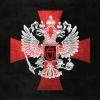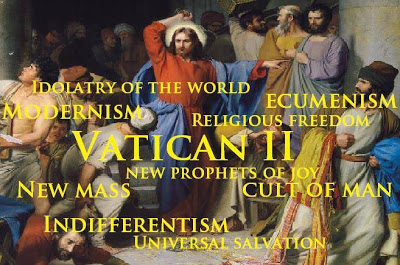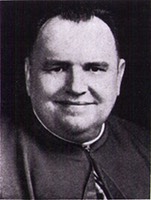

| Online: | |
| Visits: | |
| Stories: |

| Story Views | |
| Now: | |
| Last Hour: | |
| Last 24 Hours: | |
| Total: | |
TradCatKnight: Msgr. Fenton on the False Ecumenism Since Vatican II
Msgr. Fenton on the False Ecumenism Since Vatican II
While largely unknown today, many consider Msgr. Joseph Clifford Fenton as the greatest theologian the United States has ever produced. In the mid-20th century, he was a huge figure within the American Church, editing the premiere theological journal of the country and doing battle with the forces of modernism which were already becoming more and more bold in their efforts to redefine the Faith according to the “synthesis of all heresies” which they held.
Some of Fenton’s most pointed battles were against Fr. John Courtney Murray, SJ, a favorite of the Kennedy clan and the man who many consider to be the father of the Church’s post-conciliar ecumenical ethos. Murray was especially influential in developing the Vatican II document Dignitatis Humanae, which discusses matters such as religious liberty and the necessity of the Church for salvation in truly unprecedented ways. Unfortunately for the Church and millions of souls, while many observers felt that Fenton had clearly defeated Murray in their numerous theological engagements in the Catholic press, it was Murray whose influence was far more decisive at Vatican II. Once the Council turned decisively towards revolutionary sentiments in the first session, casting aside the years of previous work in the various schema that had been produced before the Council, and which had been championed by Cardinal Ottaviani and his staff of peritus (including Msgr. Fenton), Fenton’s influence on the Council waned as dramatically as did that of the deliberately publicly humiliated Ottaviani.
At any rate, the principle point of disagreement between Fenton and Murray, among others, was on the necessity of the Church for salvation and the paramount need for souls to be within that Church. This spilled over into a closely related point: whether the American form of government with its “freedom of religion” (really, formally enshrined agnosticism as the state religion) was ideal, suitable, or even permissible for Catholics to support. Murray’s vision was much more Americanist in nature, not quite indifferentism but certainly close to what has become the reality in the post-conciliar Church.
In contrast, what we read below is fully in line with the Doctrine of the Faith as handed down through the ages, and fitted for the understanding of contemporary man. I pray that one day the Church return not only to a full appreciation of Fenton’s work, but also to its implementation in a general reinstitution of classical scholastic theology. The following excerpts come from The Church of Christ: A Collection of Essays by Msgr. Joseph Clifford Fenton, pp. 299-301. I add my own comments:
The anti-Catholic agitators are continually charging that Catholics are striving to do away with freedom of religion in the United States. [As for me, guilty as charged.] In answering these men, some of our less skillful apologists [what a nice dig at Murray!] become so confused that they actually give the impression that Catholics are completely and absolutely satisfied with the situation here in the United States today, that we believe it to be the best that many of our fellow citizens should remain as they are, apart from Our Lord, from His Church, and from His true religion. Unmindful of the constant and devoutly sincere prayer of the Church that all of those who wander apart from ecclesiastical union and fellowship with Christ should be brought by God’s Grace into that fellowship, [A prayer repeated at every Good Friday in the TLM, but one which the vast majority of Catholics today have probably never heard] these writers describe as ultimately good and satisfactory a situation in which the nation itself takes no more cognizance of the true religion than it does of false systems of worship…….
……….We would by denying the force of that missionary charity within the Church, or misjudging the nature of the Church itself, were we in any way to give the impression that we do not care whether our fellow Americans enter the true Church or not. The true religion is the great good which we desire for our fellow citizens and for our country. The true Church, outside of which there is no salvation, is likewise a great and necessary good we seek for the men and the nation we love in the affection of charity.




